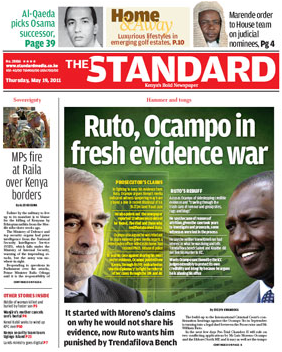Cables released from WikiLeaks provide important material in the ‘evidence war’ between ICC prosecutor Luis Moreno-Ocampo and Kenyan politician William Ruto.

The cables support Moreno-Ocampo’s arguments that exposing information about critical witnesses would be a severe threat to them and that allegations on Ruto’s involvement in the extrajudicial killings in 2007-2008 post-election violence are recognized by the U.S. embassy, which is far from ‘rubbish rumors picked up by rag blogs’ as Ruto criticized the evidences the allegation is based on.
William Ruto, the Waki Commission, and the tragedy of extrajudicial killings during 2007-2008 post-election violence in Kenya
Extrajudicial killings during 2007-2008 post-election period in Kenya has been condemned internationally, mainly by the UN Special Rapporteur on extra-judicial killings, Alston. WikiLeaks received the Amnesty 2009 New Media Award due to its notable work on leaking and reporting about the hundreds of extrajudicial killings tacitly approved by the Kibaki government and widely conducted by Kenyan Police force working with armed militias.
Among the leaked material is a report titled The Cry of Blood: Report on Extra-Judicial Killings and Disappearances, which is written by the Kenya National Commission on Human Rights (KNCHR). The UN acknowledged the report’s credibility after confirming that the information found in the report is backed by investigation results of other civil society organizations and that of the preliminary research done by UN Special Rapporteur team in 2009.
Below are photographs taken as evidences of extrajudicial killings in the report:
Theme by Danetsoft and Danang Probo Sayekti inspired by Maksimer